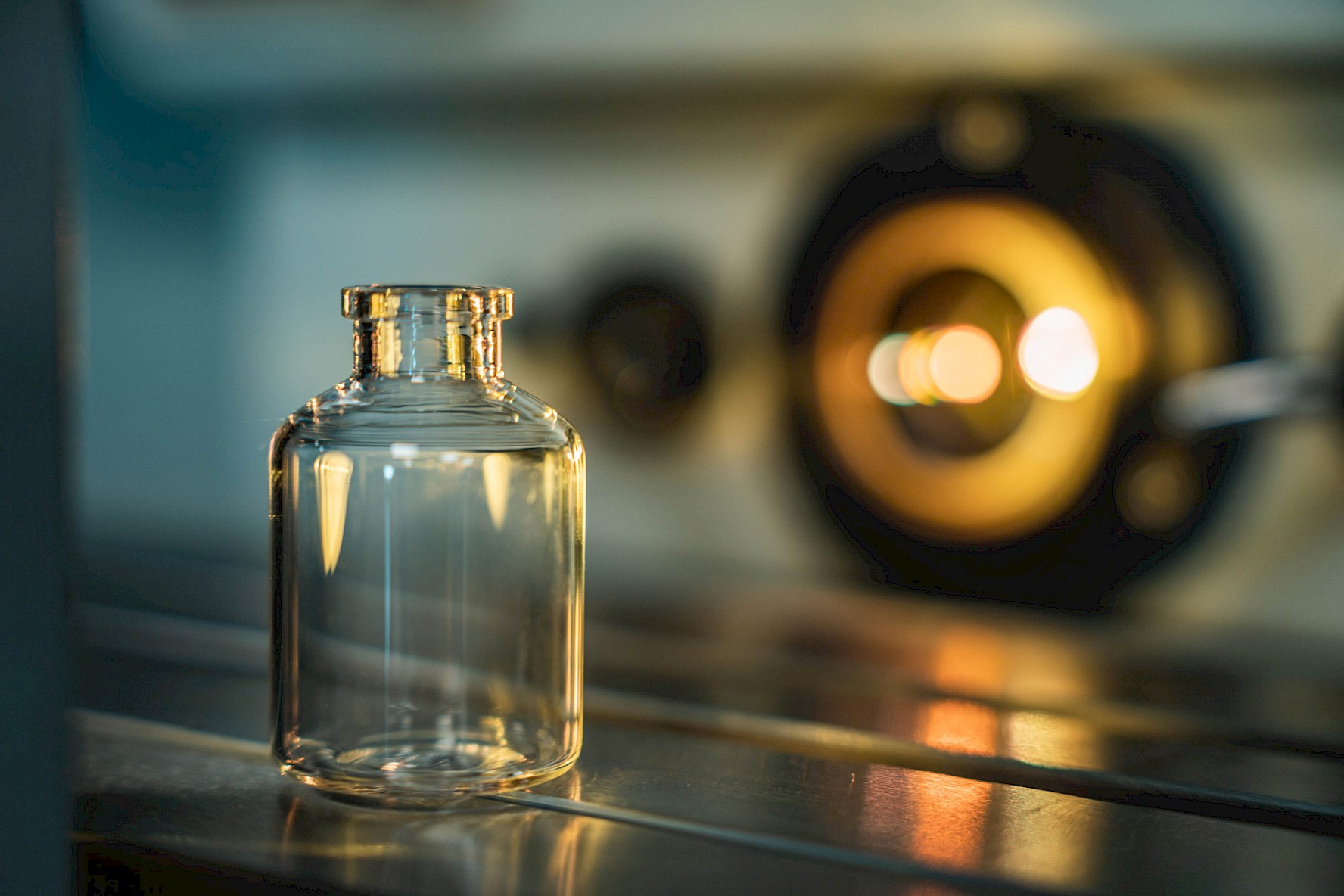Glass durability analysis determines the environmental and chemical resistance of a product through exposure to a range of acids, bases, water or other simulants. The analysis determines and quantifies any glass leaching.
Testing is available for all glass types and compositions, including the most common soda-lime-silicate and borosilicate glass leaching. We also offer bespoke testing to evaluate glass to your individual specifications.
We can test the whole article (intact sample) or grains (homogenous, crushed samples) for a range of durability applications. Tests include:
- hydrolytic resistance
- alkali resistance
- soda-lime-silicate and borosilicate glass acid resistance
- food contact material analysis
- heavy metal release
- pharmacopoeia testing
- composition analysis
- container glass industry standards
Hydrolytic resistance in glass
Durability analysis for glass resistance to water against a range of international standards, including:
- ISO 4802 (BS 3473-4) – Chemical resistance of glass used in the production of laboratory glassware. Method for determination of hydrolytic resistance of the interior surfaces of glass containers.
- ISO 719 (BS 3473-2) – Chemical resistance of glass used in the production of laboratory glassware. Method for determination of hydrolytic resistance of glass grains at 98°C.
- ISO 720 (BS 3473-3) – Chemical resistance of glass used in the production of laboratory glassware. Method for determination of hydrolytic resistance of glass grains at 121°C.
Alkali resistance
Durability for glass resistance to alkali substances for a range of international standards, including:
- ISO 695 (BS 3473-1) – Chemical resistance of glass used in the production of laboratory glassware. Method for determination of resistance of glass to attack by a boiling aqueous solution of mixed alkali.
Acid resistance
Durability for glass resistance to acidic substances for a range of international standards, including:
- DIN 12116 – Resistance to attack by a boiling aqueous solution of hydrochloric acid. Method of test and classification.
- ISO 1776 (BS 3473-5) – Chemical resistance of glass used in the production of laboratory glassware. Method for determination of resistance of glass to attack by 6 mol/L hydrochloric acid at 100°C.
Food contact material analysis (heavy metal release)
We use a range of food simulants, such as acetic and citric acids, to determine the performance of a glass product or container. We provide a suite of chemical analyses to ensure that packaging is fit for purpose and meets all applicable standards, including food contact testing and heavy metal release. We also offer bespoke service packages to meet your specific requirements.
We use accredited test methods for the analysis of lead and cadmium that may leach from glass products, containers and surfaces. Analysis is available for the migration of a range of elements and can be tailored with specific calibration programmes to meet your individual needs.
Analysis includes a range of international standards
- ASTM C927-80 – Standard test method for lead and cadmium extracted from the lip and rim area of glass tumblers externally decorated with ceramic glass enamels.
- ISO 7086 – Glass hollowware in contact with food – release of lead and cadmium.
- BS EN 1388 – Materials and articles in contact with foodstuffs. Silicate surfaces. (part 1: ceramic, part 2: non ceramic).
- BS 6748 – Specification for limits of metal release from ceramic ware, glassware, glass ceramic ware and vitreous enamel ware.
Packaging regulations
We can test your packaging to ensure it meets industry standards such as the Packaging Waste Directive 94/62/EC. Various heavy metals are analysed to determine the concentration within the glass, and the release from the glass surface (leaching). Analysis is typically provided for lead, cadmium, mercury and hexavalent chromium VI.
We can also provide trace elements and custom matrices to meet individual requirements and ensure due diligence.
Pharmaceutical testing
We offer a pharmaceutical testing according to industry standards, or bespoke tests to suit your specific requirements. They include
- pharmacopoeia verification
- delamination
- ICHQ3D
Glass durability and elemental migration analysis leadership and expertise
We have over 40 years’ combined experience in performing chemical and pharmaceutical testing for world-leading brands in the glass and pharmaceutical industries. Our experts have published scientific papers in this area and are members of the TC2 and TC12 technical committees.


